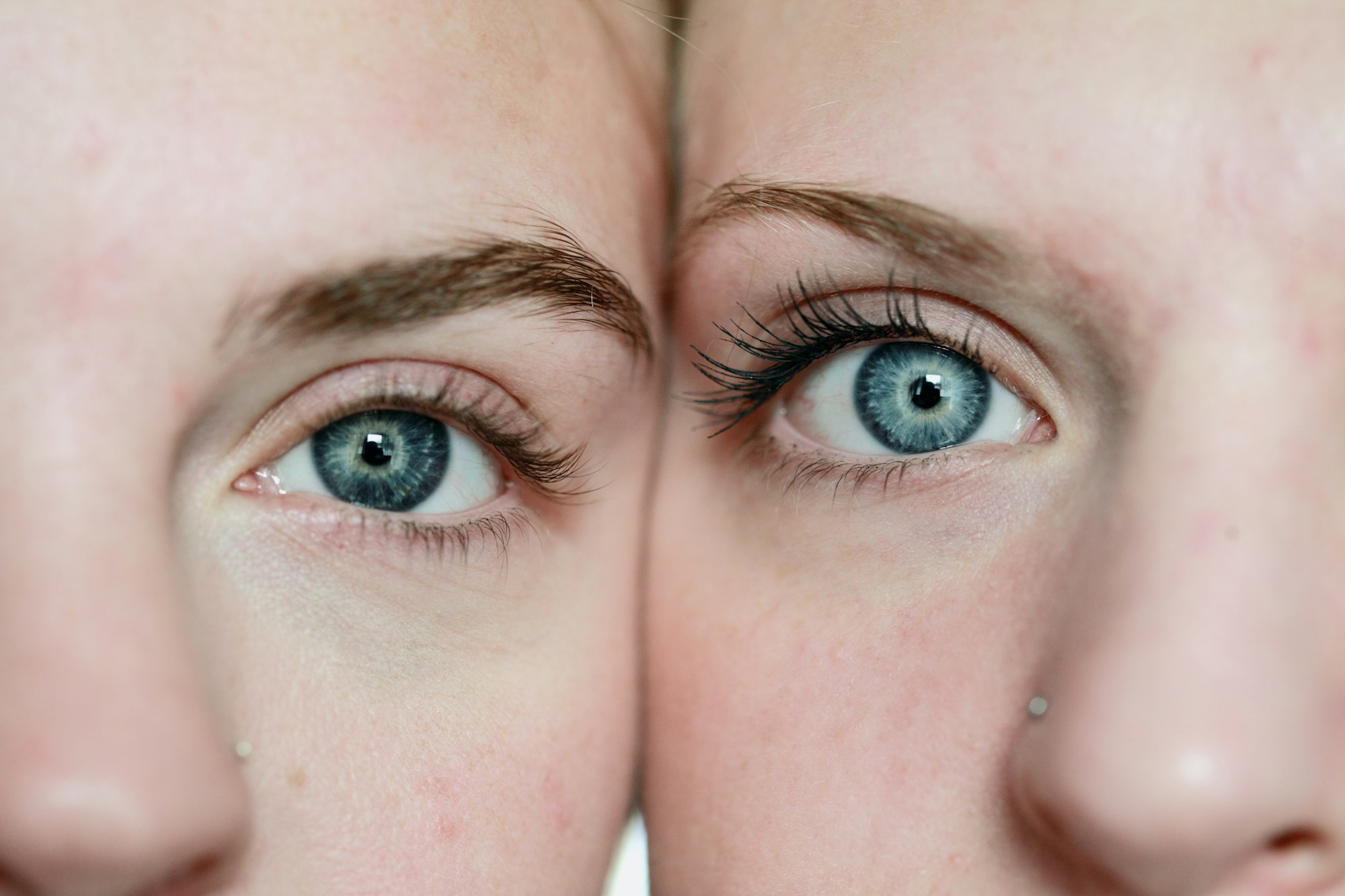Content Summary
Obsessive-Compulsive Disorder (OCD) is a mental health condition affecting millions worldwide. It is characterized by the presence of persistent and distressing obsessions and/or compulsions that significantly impact daily life.
Let's take a deeper look into OCD, exploring its symptoms, causes, testing, prevention, and behavior.
What is OCD?
OCD (Obsessive-Compulsive Disorder) is a mental health condition characterized by the presence of obsessions and/or compulsions that cause significant distress and interfere with daily functioning. It is considered an anxiety disorder.
Obsessions are intrusive and persistent thoughts, urges, or unwanted images that cause distress. These obsessions often revolve around specific themes such as cleanliness, symmetry, harm, or fear of contamination.
Common obsessions include fears of germs, a need for things to be in a specific order or arrangement, and intrusive or disturbing thoughts that go against personal values.
Conversely, compulsions are repetitive behaviors or mental acts that individuals feel driven to perform in response to their obsessions or to prevent feared outcomes.
Compulsions are typically aimed at reducing anxiety or preventing a feared event. Examples of compulsions include excessive handwashing, checking behaviors (e.g., repeatedly checking locks or appliances), counting or repeating words or phrases, and arranging or organizing objects in a specific way.
People with OCD often recognize that their obsessions and compulsions are excessive or irrational, but they feel unable to control or resist them. Obsessions and compulsions can consume a significant amount of time and interfere with daily activities, relationships, and overall quality of life.
OCD is believed to be caused by a combination of genetic, neurological, and environmental factors. Imbalances in brain chemistry, particularly involving serotonin, are thought to play a role in the development of OCD.
Stressful life events and certain personality traits may also contribute to the onset or exacerbation of symptoms.
OCD Symptoms:
OCD manifests through obsessions and compulsions. Obsessions are intrusive and unwanted thoughts, urges, or images that repeatedly enter a person's mind, causing distress.
Common obsessions include fears of contamination, symmetry, aggressive or taboo thoughts, or the need for things to be "just right." Compulsions, on the other hand, are repetitive behaviors or mental acts performed in response to obsessions.
These actions are aimed at reducing anxiety or preventing feared outcomes. Typical compulsions include excessive cleaning, checking behaviors, counting, or arranging objects in a specific manner.
OCD Causes:
The exact causes of OCD are not fully understood, but a combination of genetic, neurological, and environmental factors are believed to contribute to its development. There is evidence of a genetic component, as OCD tends to run in families.
Neurologically, imbalances in brain chemistry, particularly involving serotonin, are thought to play a role. Environmental factors such as childhood trauma, life stressors, or certain infections may also contribute to the onset or exacerbation of symptoms.
OCD Testing:
Diagnosing OCD involves a comprehensive evaluation by a qualified mental health professional. The professional will assess the individual's symptoms, medical history, and the impact on daily functioning.
The diagnostic criteria outlined in the Diagnostic and Statistical Manual of Mental Disorders (DSM-5) are used as a guideline for diagnosis. Additionally, self-report questionnaires, interviews, and observation of behavior may aid in the assessment process.
OCD Prevention:
Preventing OCD is challenging since the exact causes are not fully known. However, early intervention and recognizing symptoms can help manage the condition effectively.
Identifying and addressing potential risk factors, such as childhood trauma or stressors, may be beneficial. Promoting mental health awareness, reducing stigma, and providing education about OCD can help individuals seek help earlier and access appropriate treatment.
OCD Behavior:
OCD behavior revolves around obsessive thoughts and the accompanying compulsive actions. People with OCD often feel driven to perform their rituals or mental acts to alleviate anxiety or prevent feared outcomes. However, engaging in these behaviors provides temporary relief, reinforcing the cycle of OCD.
Over time, the behaviors can become time-consuming, impairing daily functioning and causing distress. It's important to note that individuals with OCD are often aware that their obsessions and compulsions are excessive or irrational, but they feel unable to control or resist them.
OCD Treatment:
Treatment for OCD typically involves a combination of therapy and, in some cases, medication. Cognitive-behavioral therapy (CBT) is the most common form of therapy used for OCD and often includes a specific type called exposure and response prevention (ERP).
ERP helps individuals gradually face their fears and learn healthier ways of responding to their obsessions and managing their anxiety.
Medications, such as selective serotonin reuptake inhibitors (SSRIs), may be prescribed to help manage the symptoms of OCD by balancing brain chemistry. In some cases, a combination of therapy and medication can be beneficial.
Effective treatments for OCD include a combination of therapy and, in some cases, medication. Cognitive-Behavioral Therapy (CBT), particularly exposure and response prevention (ERP), is a commonly used therapy.
Most FAQs about OCD:
How to Find Out if I have OCD?
If you suspect that you may have Obsessive-Compulsive Disorder (OCD), it is advisable to seek professional help from a qualified mental health provider for an accurate diagnosis.
Here are some steps you can take to find out if you have OCD:
Self-Assessment: Start by educating yourself about the symptoms and characteristics of OCD. Numerous reputable sources provide information about OCD symptoms, such as intrusive thoughts, repetitive behaviors, and the impact on daily life. Reflect on your own experiences and compare them to the common symptoms of OCD.
Consult a Mental Health Professional: Reach out to a mental health professional, such as a psychologist, psychiatrist, or licensed therapist, who has experience in diagnosing and treating OCD. You can begin by scheduling an appointment with a primary care physician, who can provide referrals to specialists if needed.
Evaluation and Assessment: The mental health professional will conduct a comprehensive evaluation during your appointment. They will ask about your symptoms, medical history, and the impact of those symptoms on your daily life. This evaluation may involve interviews, questionnaires, and possibly observations of your behavior.
Diagnostic Criteria: The mental health professional will refer to the Diagnostic and Statistical Manual of Mental Disorders (DSM-5), which outlines the criteria for diagnosing mental health conditions, including OCD. They will assess whether your symptoms meet the specific criteria outlined in the manual.
Open and Honest Communication: It is crucial to be open and honest with your mental health provider about your thoughts, feelings, and behaviors. Share specific examples of your obsessions, compulsions, and the distress they cause. The more information you provide, the better they can assess and understand your situation.
Collaborative Decision-Making: The mental health professional will discuss their findings with you after the evaluation. If you meet the diagnostic criteria for OCD, they will provide a diagnosis. They will explain the nature of OCD, and its potential impact on your life, and discuss treatment options.
Remember, self-diagnosis is not sufficient to confirm or rule out OCD. A professional evaluation is essential for an accurate diagnosis. Mental health professionals have the expertise to differentiate between OCD and other conditions that may present similar symptoms.
Is OCD Considered as Anxiety Disorder?
Yes, Obsessive-Compulsive Disorder (OCD) is considered an anxiety disorder. It is categorized as such in the Diagnostic and Statistical Manual of Mental Disorders (DSM-5), which is widely used for diagnosing mental health conditions.
Anxiety disorders are characterized by excessive and persistent feelings of fear, worry, or apprehension. OCD specifically involves anxiety-inducing obsessions (intrusive and unwanted thoughts, urges, or images) and the accompanying compulsions (repetitive behaviors or mental acts) performed in response to these obsessions.
The obsessions and compulsions in OCD are driven by the desire to reduce anxiety or prevent feared outcomes.
While anxiety is a prominent feature of OCD, it's important to note that OCD is a distinct disorder within the broader category of anxiety disorders. Other anxiety disorders include generalized anxiety disorder (GAD), panic disorder, social anxiety disorder, and specific phobias. Each disorder has its unique set of symptoms and characteristics.
In the case of OCD, the anxiety primarily stems from the obsessions and the distress associated with them. Individuals with OCD often experience intense anxiety when their obsessions arise, and the compulsive behaviors serve as a way to alleviate or manage that anxiety temporarily.
Is OCD Genetic?
There is evidence to suggest that Obsessive-Compulsive Disorder (OCD) has a genetic component, meaning that genetics can contribute to its development.
Research studies have indicated that there is an increased risk of OCD in individuals who have a first-degree relative (such as a parent, sibling, or child) with the disorder.
Twin and family studies have provided further support for the genetic influence on OCD. For instance, identical twins (who share 100% of their genetic material) are more likely to both have OCD compared to fraternal twins (who share about 50% of their genetic material).
Similarly, individuals with a close family member who has OCD have a higher risk of developing the disorder themselves compared to the general population.
However, it's important to note that genetics is not the sole factor determining whether someone will develop OCD. The interplay between genetic factors and environmental influences is complex.
Other non-genetic factors, such as brain chemistry, early life experiences, and environmental stressors, also play a role in the development of OCD.
Ongoing research aims to identify specific genes and genetic variations associated with OCD. However, no single gene has been identified as the sole cause of OCD. It is likely that multiple genes, each contributing a small effect, interact with environmental factors to increase susceptibility to OCD.
Understanding the genetic basis of OCD can contribute to improved diagnosis, treatment, and prevention strategies. However, it's important to approach the topic with an understanding that genetics is just one piece of the puzzle, and a comprehensive understanding of OCD involves considering various biological, psychological, and environmental factors.
What are the Treatments and Lifestyles to Prevent OCD?
Obsessive-Compulsive Disorder (OCD) is a complex condition that typically requires professional treatment for effective management.
While there is no guaranteed way to prevent OCD, certain strategies and lifestyle choices may help reduce the severity of symptoms or minimize their impact on daily life.
Here are some recommended approaches:
Early Intervention: Early identification and intervention can make a significant difference in managing OCD. If you or someone you know shows signs of OCD, seek professional help promptly. The earlier OCD is diagnosed and treated, the better the chances of successful management.
Cognitive-Behavioral Therapy (CBT): CBT, particularly exposure and response prevention (ERP), is considered the gold standard treatment for OCD. ERP involves gradually exposing individuals to their obsessions without engaging in their compulsions, helping to break the cycle of anxiety and compulsive behavior.
Seeking therapy from a qualified mental health professional experienced in treating OCD can provide valuable tools and coping mechanisms.
Medication: In some cases, medication may be prescribed to help manage the symptoms of OCD. Selective serotonin reuptake inhibitors (SSRIs) are often the first-line medications used for OCD. It is essential to consult with a psychiatrist or healthcare provider to determine if medication is appropriate and to monitor any potential side effects.
Stress Management: Stress can exacerbate OCD symptoms. Engaging in stress-reducing activities such as regular exercise, relaxation techniques (e.g., deep breathing, meditation), practicing mindfulness, and getting sufficient sleep can help manage overall stress levels and potentially reduce the impact of OCD symptoms.
Support Network: Building a strong support network can be beneficial for individuals with OCD. Seek understanding and support from family, friends, or support groups where you can share experiences and learn from others facing similar challenges. Supportive relationships can provide emotional support and encouragement throughout the treatment process.
Self-Care: Prioritizing self-care is essential for overall well-being. Engage in activities you enjoy, pursue hobbies, maintain a balanced lifestyle, and practice self-compassion. Taking care of your physical and emotional health can contribute to managing stress and promoting a positive mindset.
Education and Awareness: Educate yourself about OCD, its symptoms, and treatment options. Understanding the condition can help you identify triggers, develop coping strategies, and make informed decisions about your treatment. Stay updated on the latest research and advancements in OCD management.
It's important to remember that OCD is a complex disorder, and each person's experience is unique. Effective treatment often involves a combination of therapy, medication, and personalized strategies.
Consulting with a mental health professional who specializes in OCD is crucial for developing an individualized treatment plan tailored to your specific needs and circumstances.
What Foods and Supplements Can Help Improve OCD?
While there is no specific diet or supplement that can cure or directly treat Obsessive-Compulsive Disorder (OCD), maintaining a healthy and balanced diet can support overall mental well-being.
It's important to consult with a healthcare professional or a registered dietitian before making any significant dietary changes or adding supplements to your routine.
Here are some general guidelines:
Balanced Diet: Focus on consuming a balanced diet that includes a variety of fruits, vegetables, whole grains, lean proteins, and healthy fats. A balanced diet provides essential nutrients that support brain health and overall well-being.
Omega-3 Fatty Acids: Omega-3 fatty acids, found in fatty fish (such as salmon and tuna), walnuts, flaxseeds, and chia seeds, have been associated with brain health.
While more research is needed to understand their specific impact on OCD, including omega-3 fatty acids in your diet may have potential benefits for overall mental health.
Gut-Brain Connection: Emerging research suggests a potential link between gut health and mental health. Consuming a diet rich in fiber, whole foods, and probiotics (found in fermented foods like yogurt, kefir, and sauerkraut) may support a healthy gut microbiome, which can indirectly influence mental well-being.
Caffeine and Stimulants: Limit or moderate the consumption of caffeine and stimulants like energy drinks, as they can exacerbate anxiety and potentially worsen OCD symptoms in some individuals.
Supplements: While supplements should not replace a healthy diet or professional treatment, some individuals with OCD may benefit from certain supplements under the guidance of a healthcare professional.
For example, some studies suggest that certain supplements like
N-acetylcysteine (NAC) and inositol may have potential benefits for OCD symptoms. However, it's important to note that research is still ongoing, and individual responses can vary.
Adopting healthy lifestyle habits beyond diet, such as regular exercise, sufficient sleep, stress management techniques, and engaging in activities you enjoy, can contribute to overall well-being and potentially help manage OCD symptoms.
Conclusion
In conclusion, OCD is a complex mental health condition characterized by obsessions and compulsions that significantly impact individuals' lives. Understanding its symptoms, causes, testing, prevention, and behavior is essential in promoting awareness, early intervention, and effective treatment.
With proper support and treatment, individuals with OCD can learn to manage their symptoms, regain control over their lives, and improve their overall well-being.
Stay Healthy & Happy!
Relevant Reads>>>









